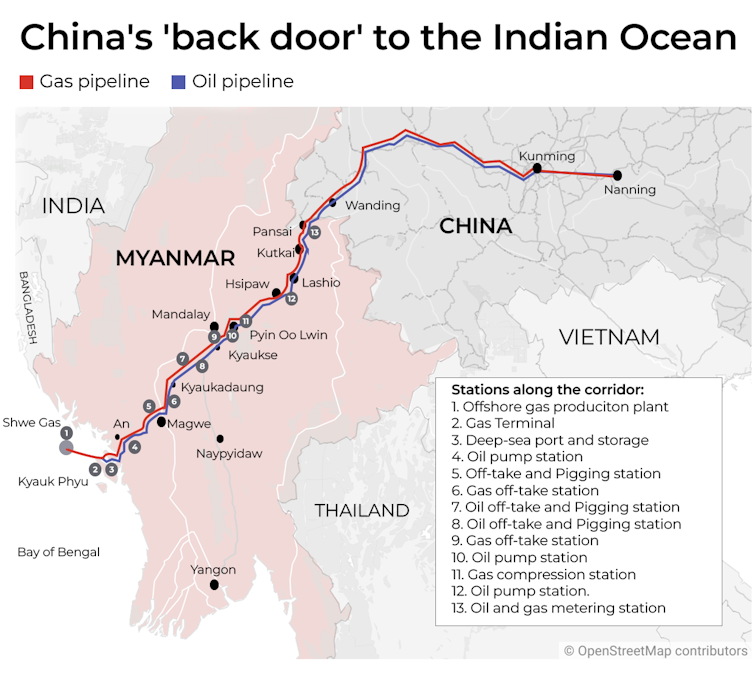China's influence in Myanmar could tip the scales towards war in the South China Sea
- Written by Htwe Htwe Thein, Associate professor, Curtin University

The fate of Myanmar has major implications for a free and open Indo-Pacific.
An undemocratic Myanmar serves no one’s interests except China, which is consolidating its economic and strategic influence in its smaller neighbour in pursuit of its two-ocean strategy[1].
Read more: Friday essay: if growing US-China rivalry leads to 'the worst war ever', what should Australia do?[2]
Since the coup China has been – by far – the main source of foreign investment[3] in Myanmar.
This includes US$2.5 billion[4] in a gas-fired power plant to be built west of Myanmar’s capital, Yangon, that will be 81% owned and operated by Chinese companies.
Among the dozens of infrastructure projects China is funding are high-speed rail links and dams. But its most strategically important investment is the China-Myanmar Economic Corridor[5], encompassing oil and gas pipelines, roads and rail links costing many tens of billions of dollars.
The corridor’s “jewel in the crown” is a deep-sea port to be built at Kyaukphyu, on Myanmar’s west coast, at an estimated cost of US$7 billion[6].
This will finally give China its long-desired “back door” to the Indian Ocean.

















